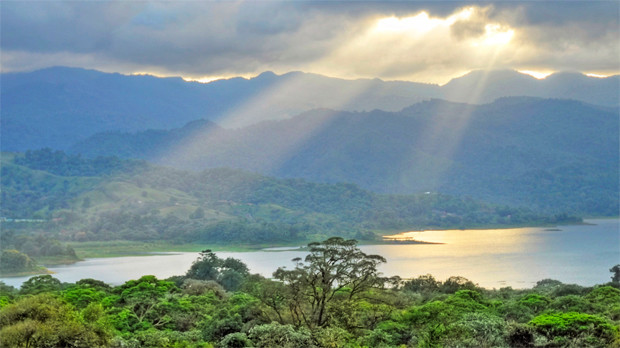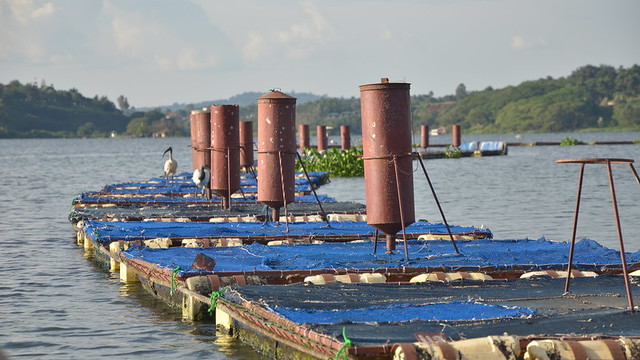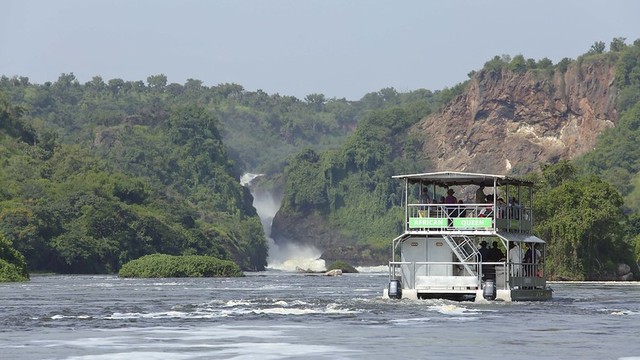Natural capital accounting: six tips for engaging policymakers
How to engage a policy audience in an approach they are not familiar with – what we've learnt from our work with WAVES.


Forest landscape in northern Costa Rica. Natural capital accounting has shown the value of Costa Rica's forests and forest products (Photo: keltikee, Creative Commons via Flickr)
We've just finished working with the World Bank on the first phase of the Wealth Accounting and the Valuation of Ecosystem Services (WAVES) initiative, supporting eight countries to produce natural capital accounts. IIED's role was to work with country teams, including communication specialists, to engage with policymakers around the added value of this approach.
First challenge: what is natural capital accounting (NCA)? And once you've found out, how do you explain the value of such a complex method simply and clearly, without being too technical?
Try this: natural capital accounting is a UN-standardised approach that measures the amount of a natural resource (the stock) – water, for example – in a country, then accounts for the flows of that resource through the economy, tots up the income the resource contributes to GDP, but also reveals the long-term cost to the country of reducing stock levels as a result of using it.
The approach can also be applied to calculate the value of the services provided by an ecosystem, such as a forest or river basin, and the reciprocal costs to that ecosystem, although this part of NCA is still experimental.
NCA was unknown to all five in-country communication consultants working with IIED in Rwanda, Botswana, Indonesia, Guatemala, Colombia and Costa Rica, so the learning curve was steep.
At the June 2016 WAVES annual partnership meeting we looked at what we had learnt and what we would want to pass on to communication specialists starting from scratch in a new WAVES country.
Six tips for communicating NCA
- Teamwork – tell each other what you know. The communication specialist in a country team needs a good induction to the approach: what is natural capital accounting, how has it been or how could it be used? In return, the country specialists they work with (often environmental economists) need to understand the principles of what makes for strong communications and, particularly, how the media work (for example, getting to know journalists is essential).
- Start by mapping stakeholders. This joint exercise takes place with a core group of contacts representing the stakeholder groups you would expect to be interested. It not only serves to find out how much these people know about NCA, but also gets their opinion on priority audiences – who is supportive or who could be high risk? From this mapping flows a communications strategy, which has to be tempered by the next top tip…
- Understand the political economy of the space in which you will be working. Knowing where the power lies, what political pressures are being felt or are upcoming, and which relationships are important should inform decisions on whom to approach first, when and with what message.
In Botswana and Rwanda, for example, this has meant the communications consultant and country coordinator setting up a series of meetings with different ministries from tourism to local government – time consuming to arrange but important to understand the pressures and demands policymakers faced and raise awareness of NCA. As a result, the project could tailor its messages accordingly. In every country we've found engaging the ministry of finance is essential
- Etiquette, protocols and hierarchy can't be ignored. In government these are important and it's worth spending time on finding out the idiosyncrasies of each department, getting to know the right members of staff, and understanding who has to be talked to first, even if you'd really rather work with someone else. It sometimes might feel you are spending all your time on this to the detriment of actual communications work – but this is all part of it.
- Provide appropriate information for your audience. NCA yields a lot of technical data which most policy people are not going to be able to understand 'raw'. It's essential to have people who can take the data, analyse it and be able to 'translate' what it means for policy.
This requires an ability to formulate a clear and engaging story from the technical evidence, making sure it responds to policy demands or can inform the policy context. Communications, technical and policy specialists need to work together to communicate creatively, using infographics, briefings or highly visual material.
Costa Rica's Powerpoint presentation of their accounts shows how this can be done well, as does an article from Colombia about how accounts data informed a national statement about the cost of forest fires.
- You can't avoid communication. It’s important to start raising awareness about natural capital accounting, what it is and how accounts can be used, before you have final results – although you cannot use unverified data, and expectations about when the data will be ready have to be managed. The temptation is not to say anything until the results are out, but this risks losing audience interest. Messaging can start by taking examples about how accounts have been used in other countries.
Most of these top tips can, of course, be applied to any thematic policy area - biodiversity conservation or ecosystem-based adaptation, for example - that you are trying to integrate into mainstream policy and development decision making.
Rosalind Goodrich (rosalind.goodrich@iied.org) is research communications manager in IIED's Communications Group.



